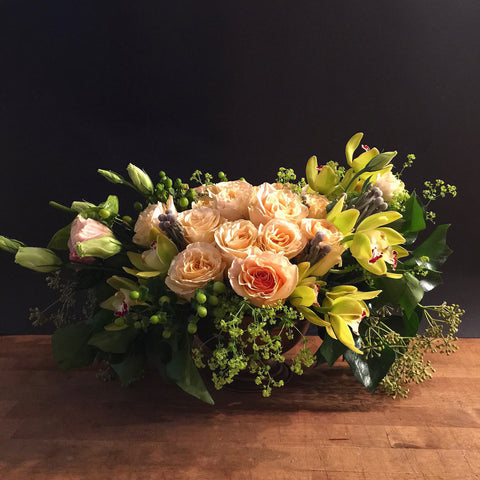Choose your frequency and needs and we will take the rest - home, office or as a gift!
"So are we being tricked when a scientist engineers a lily that doesn’t shed pollen or when a grower forces tulips to bloom in December? Does it matter that a dewy-fresh bouquet of roses traveled halfway around the world and lived without water for several days before it arrived at. Yes and no. There’s no doubt that flowers underwent a complete makeover in the twentieth century. New breeding techniques, advanced greenhouse technology, and global transportation systems saw to that. Thanks to those advances, there are some fantastic flowers on the market, all year long.
Forty billion dollars changing hands each year, all in the name of flowers. The idea was intoxicating. Before long, it became clear to me that this global flower traffic was not without consequence. A hundred years ago, for example, almost all of the cut flowers sold in the United States were also grown here; now roughly three-fourths of our flowers are imports, mostly coming from Latin America. The flowers themselves have been forced to change in response. They are now bred more for their suitability as freight than for any of their more refined qualities —delicacy, grace, and fragrance. They may have lost their scent, but they’ve gained a longer vase life. They’ve lost their individuality but have "gained the ability to travel all the way from Ecuador or Holland to sit on your hall table in the middle of December. They are ephemeral, emotional, and impractical, but we Americans buy about four billion of them a year. We buy more flowers than we do Big Macs. Flowers are big business. It just happens to be a gorgeous, bewitching, bewildering business."

From Flower Confidential by Amy Stewart
